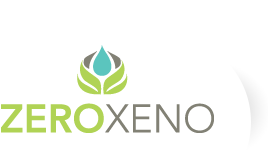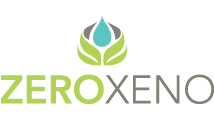Our products are proudly manufactured in Canada and are a product of Canada.
Is there any truth to aloe vera being an endocrine disruptor by blocking progesterone? It is in most of my natural products, and I have read this from a few different sources.
Answer:
My research on aloe vera is not extensive but I’m happy to share what I have learned.
According to science based research, various aloe vera plant species may mildly increase estrogen levels. The change in ratio of estrogen to progesterone may be what you were referring to when asking if aloe vera blocks progesterone. The phytoestrogen (plant based estrogens) components in aloe vera are called beta sitosterols (phytosterols) which are antioxidants that have a structure similar to the cholesterol produced naturally in the body. Many plants contain phytosterols including avocados, amaranth and various nuts and legumes.
It is my opinion that beta sitosterols from aloe vera and other food sources will not disrupt your endocrine system if used in a balanced way. Studies show beta sitosterols to be beneficial in the prevention of cancer, arthritis and heart disease. Additionally, phytoestrogens are known to displace xenoestrogens (foreign chemical estrogens), and assist in the fight against cancer and hormone related issues by displacing (detoxifying) xenoestrogens from the body’s cell receptor sites.
It is important to ensure that the aloe vera product you are using contains 100% pure aloe vera because sadly many companies hide various parabens (known xenoestrogens) in aloe vera, and do not disclose this on their list of ingredients. The best way to ensure your favorite aloe vera product does not contain hidden parabens is to contact the company directly yourself. If they are reputable, they will provide you with an honest answer.
The founder of Zero Xeno, Bonnie Penner and all employees are not medical doctors or trained medical professionals. All advice and information posted on this website is from personal research and/or experience and is intended for general educational purposes. This information is not intended to be a substitute for professional medical advice related to specific medical conditions. We cannot diagnose illnesses nor confirm any claim as to therapeutic safety, effectiveness or course of treatment. Always seek the advice of your physician or other qualified health professionals for any concerns regarding your health. Only your physician can provide specific diagnosis and treatments. Please refer to our full Disclaimer for more details.


